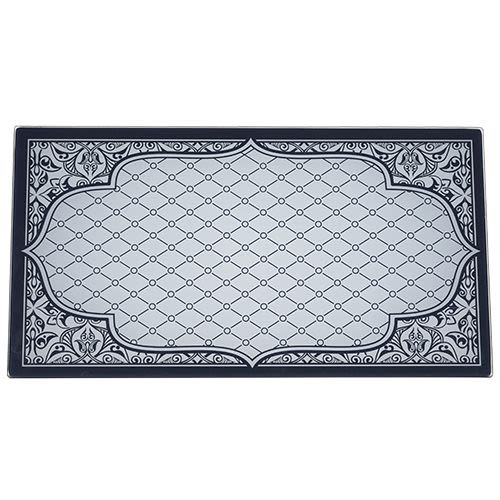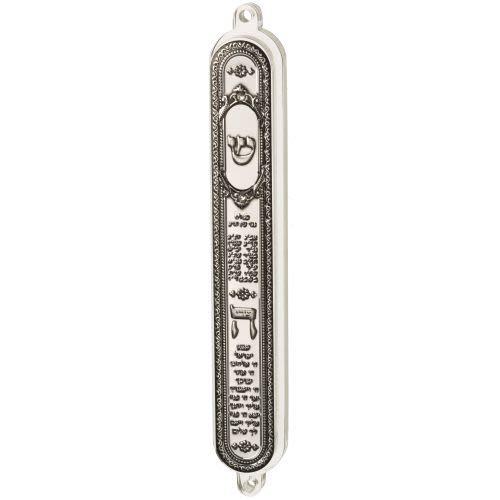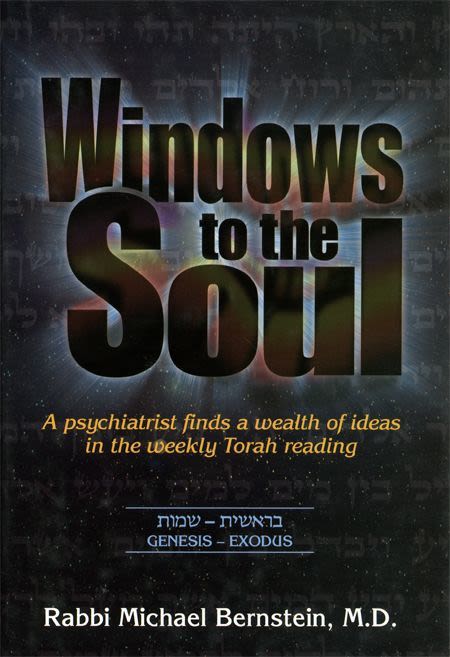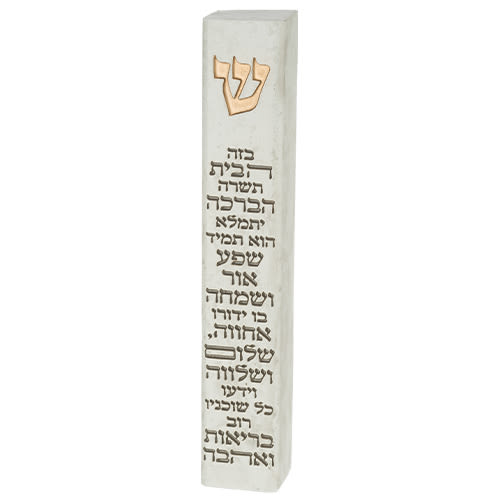
We Have Not Abandoned Your Covenant
This is how God acts towards the entire creation, and towards each individual according to his unique abilities. All the trials that a...

This is how God acts towards the entire creation, and towards each individual according to his unique abilities. All the trials that a person encounters in life may be for the sake of one moment of fortitude and the joyful acceptance of God’s judgment at that instant.
SO MUCH HAS HAPPENED TO US, YET WE HAVE NOT ABANDONED YOUR COVENANT!
King Yehoyachin was the last generation of the Kings of Yehuda. (King Tzidkiyahu, who reigned after him for eleven years until the destruction of the Temple, was his uncle.) The verse testifies that he did not follow the ways of the Torah. “And he did evil in the eyes of God” (II Melachim 24:9). Yirmiyahu (Jeremiah) prophesied about him: “Is this man [Yehoyachin] a despised and broken vessel, an object no one cares for? …O earth, earth, earth, hear the word of the Lord. Thus says the Lord: Write this man childless, a man that shall not prosper in his days; for he shall have no seed that will merit to sit upon the throne of Dovid Hamelech (King David), and rule any more in Yehuda” (Yirmiyahu 22:28-30). Yirmiyahu cursed him in the name of God that, because of his sins, he would die childless, and the Davidic lineage would not be continued through him.
The Babylonian Exile
Three months into Yehoyachin’s reign, the Babylonian exile began. The king and all the leaders of the people were exiled from Jerusalem. ”And Nebuchadnezzar carried away all Jerusalem, and all the princes, all the mighty soldiers, ten thousand captives, as well as all the craftsmen and smiths… And he exiled Yehoyachin to Babylon, along with the king’s mother, wives, and officers… The King of Babylon brought them captive to Babylon” (I Melachim 24:14-16). Mordechai the Tzaddik was also among them, as Megillat Esther (The Book of Esther) relates: “Now in Shushan there was a certain Jew named Mordechai… who had been exiled from Jerusalem with the captivity of [Yehoyachin] King of Yehuda, whom Nebuchadnezzar the King of Babylon had carried away” (Esther 2:5-6).
King Yehoyachin in Prison
According to the Midrash, Nebuchadnezzar threw Yehoyachin into the dungeon – that meant a life sentence, with no hope of escape. Thus the verse says about Nebuchadnezzar “Is this the man who made the earth shake and kingdoms tremble… who never freed his prisoners?” (Yishayahu 14:16-17), for he never once allowed a prisoner to return home.
The very last offspring of the King of Yehuda was captured. Nebuchadnezzar had declared that Yehoyachin would not emerge from the dungeon alive. Nor did Yehoyachin have any sons at this point. It seemed as though Yirmiyahu’s prophecy was about to be fulfilled, “Write this man childless, a man that shall not prosper in his days.”
Standing Up to the Test
The wise men of that generation realized that, God forbid, the Davidic lineage was about to be cut off before their eyes. The Sanhedrin knew that the Messiah was destined to emerge precisely from the line of King Yehoyachin. Something had to be done to prevent this terrible calamity – the destruction of the last precious offshoot. They spoke to the nurse who had raised Nebuchadnezzar’s queen. She, in turn, influenced the queen, who then persuaded her husband to allow Yehoyachin a conjugal visit from his wife. Upon receiving permission, Yehoyachin’s wife prepared herself in accordance with the laws of family purity: counting the clean days and immersing herself in a mikveh. When she arrived at the dungeon, she was lowered through an opening into Yehoyachin’s cell. However, at that moment, she announced to the king, “I have seen something like a red rose” – a menstrual discharge that halachically forbade her to her husband. Yehoyachin restrained himself and she left.
When God saw the great test that Yehoyachin had overcome, He immediately absolved His vow that Yehoyachin would die childless, and forgave him all his sins. The queen prepared herself as before and returned. From this liaison was born the tzaddik, Zerubavel ben Shaltiel, who continued the Davidic lineage. The Talmud comments: Why was Yehoyachin referred to as Shaltiel? Because God sought pardon – sho’al alto – from His vow. Why was his son named Zerubavel? Because he was conceived – nizra – in Bavel (Babylon) (Sanhedrin 38a. See Tiferet Tzion).
Zerubavel was the leading tzaddik of his generation (Likutey Moharan 1:8). Chazal say that in the World to Come, God will sit in Gan Eden and teach Torah to all the tzaddikim. When He finishes the discourse, Zerubavel will rise and say Kaddish. His voice will be heard from one end of the world to the other, and all the inhabitants of the earth will answer Amen. Even the wicked will answer from Hell, and the entire world will tremble (Yalkut Yeshayahu 428).
Zerubavel was the first to bear the lofty title of Reish Galuta – Exilarch – and was the equivalent of a king. There were eighty-seven Exilarchs in Jewish history (Seder HaDorot 1:757. See, also, Shevet Yehuda 42, by Rabbi Shlomo ben Virga, in the name of the first Geonim.) The heads of yeshivot were appointed by them, as were all judges throughout Israel. According to their word, yeshivot were opened in every Jewish settlement. The reign of Exilarchs extended throughout the entire period of the Tannaim, Amoraim, Savoraim, and Geonim – approximately 1,500 years.
The honor and glory of 1,500 years resulted from one moment of self-control by King Yehoyachin. A holy spirit reverberated in him then, even after God had vowed that he would die childless. And this took place even though he was trapped in the worst dungeon in the world, without a rational hope of escape.
Ultimately, King Yehoyachin was freed from the dungeon by Evil Merodach, the son of Nebuchadnezzar, as is explained at the end of Sefer Melachim (Book of Kings):
“And it came to pass in the thirty-seventh year of the captivity of Yehoyachin King of Yehuda, in the twelfth month, on the twenty-seventh day, that Evil Merodach King of Babylon, in the first year of his reign, freed Yehoyachin King of Yehuda from prison. And spoke kindly to him, and set his throne above the thrones of the kings that were with him in Babylon …” (II Melachim 25:27-28).
From here we see how even a single victory over the evil inclination can break countless barriers and produce results of eternal significance.
You Test Us Every Minute
This is how God acts towards the entire creation, and towards each individual according to his unique abilities. All the trials that a person encounters in life may be for the sake of one moment of fortitude and the joyful acceptance of God’s judgment at that instant. This will cause deliverance to sprout forth for him and his descendants, forever.
(Used with permission from the author. Taken from the book "In all my Ways" Keren Ohr Publications.)











Tell us what you think!
Thank you for your comment!
It will be published after approval by the Editor.